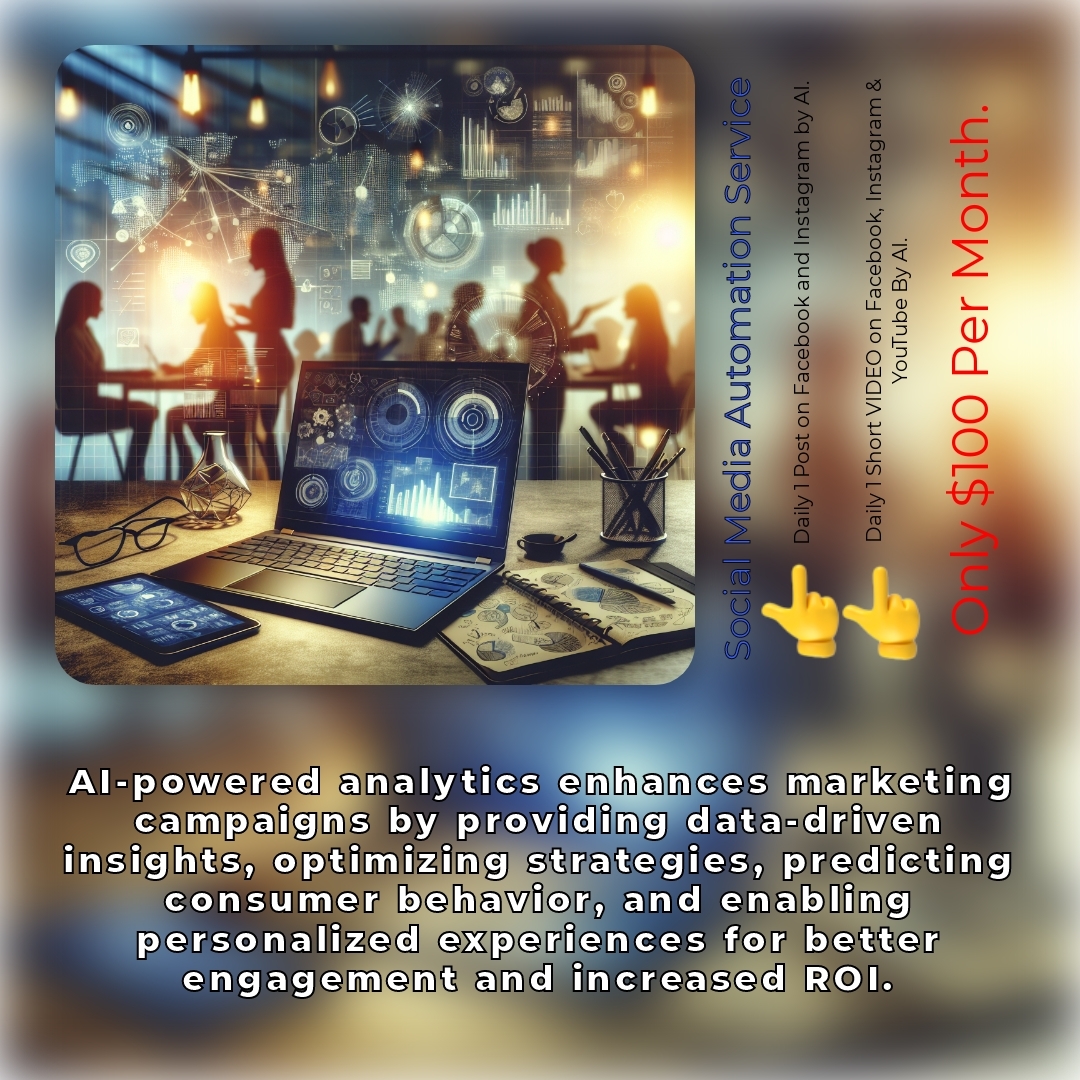AI-Powered Analytics is reshaping how businesses approach marketing campaigns. In today’s digital landscape, employing AI technologies enables marketers to gather and analyze vast amounts of data efficiently. This article delves into the transformative potential of AI-Powered Analytics, illustrating its impact on campaign effectiveness and the evolution of data-driven marketing strategies.
“Embrace AI analytics to unlock your campaign’s true potential.”

AI-Powered Analytics is transforming how businesses approach their marketing campaigns, enabling them to harness vast amounts of data to make informed decisions. By integrating AI technologies, marketers can enhance the effectiveness of their campaigns and develop strategies that resonate deeply with their audiences.
Understanding AI-Powered Analytics
Artificial Intelligence is revolutionizing the marketing landscape by providing powerful tools that streamline and enhance data-driven marketing. At the core of AI-Powered Analytics are several key components:
- Data Collection Methods: AI utilizes various methods to gather data from multiple sources, including social media, websites, and customer interactions.
- Data Processing and Analysis: Once collected, AI algorithms process and analyze the data to extract meaningful insights.
- Tools and Software Used: Many platforms like Google Analytics, HubSpot, and Salesforce incorporate AI features for enhanced marketing analytics.
The Role of AI-Powered Analytics in Marketing Campaigns
AI dramatically enhances Data-Driven Marketing by allowing marketers to analyze consumer behavior and preferences more accurately. For example, brands like Netflix and Spotify use AI algorithms to tailor content suggestions based on user engagement.
- Examples of Successful Marketing Campaigns: Companies like Coca-Cola have utilized AI-powered analytics to personalize their advertising strategies, resulting in increased engagement and conversions.
- Importance of Marketing Analytics for Businesses: With businesses today flooded with data, the ability to derive actionable insights is invaluable for staying competitive.
Benefits of AI in Marketing Analytics
The benefits of utilizing AI for marketing analytics are substantial and impactful:
Improved Customer Insights
- Understanding Customer Preferences and Behavior: AI helps marketers gain deeper insights into what customers want and how they behave, which informs better campaign strategies.
- Segmenting Audiences for Targeted Campaigns: By identifying different customer segments, businesses can tailor their messages to resonate more effectively.
Enhanced Predictive Analytics
- Forecasting Trends and Consumer Behavior: AI can analyze historical data to predict future trends, giving businesses a competitive edge.
- Utilizing Historical Data to Improve Future Campaigns: By understanding past results, marketers are better equipped to create successful future campaigns.
Campaign Optimization
- Real-Time Performance Metrics: AI empowers marketers to monitor campaign performance as it happens, allowing for immediate adjustments.
- Adapting Strategies Based on Analytics Results: With real-time insights, companies can pivot their strategies quickly, optimizing their campaigns for better outcomes.
Using AI for Effective Marketing Strategies
The integration of AI into marketing strategies allows for the creation of more personalized customer experiences. Marketers can leverage AI to streamline processes through automation, which not only saves time but also enhances efficiency.
Case Studies: Companies Successfully Using AI-Powered Analytics
Numerous companies are already reaping the benefits of AI-Powered Analytics:
- Amazon: Leverages AI to enhance product recommendations, resulting in increased sales.
- Sephora: Uses AI for virtual try-ons, enriching the customer experience and boosting engagement.
Enhancing Campaign Performance with AI Analytics
To truly capitalize on AI’s advantages, it’s crucial to establish clear performance metrics for AI-driven campaigns. This allows businesses to evaluate success accurately.
Continuous Improvement through Feedback Loops
- Implementing feedback loops helps in refining marketing strategies based on real-time data insights.
- This approach fosters a culture of continuous improvement, ensuring campaigns remain relevant and effective.
The Future of AI in Marketing Analytics
The landscape of marketing analytics is evolving. As AI technologies continue to advance, we can expect even more innovative tools and practices that will further enhance the capabilities of marketers.
In conclusion, AI-Powered Analytics is revolutionizing Marketing Campaigns by enabling businesses to harness data more effectively than ever before. The benefits are clear, from improved customer insights and enhanced predictive analytics to optimized campaigns that deliver results.
For marketers looking to stay ahead in today’s competitive landscape, embracing AI-Powered Analytics is essential. It’s time to take that step and elevate your marketing strategies for better outcomes.
Frequently Asked Questions
What is AI-Powered Analytics?
AI-Powered Analytics refers to the use of artificial intelligence techniques to gather, process, and analyze vast amounts of marketing data. This enables businesses to make informed decisions by gaining deeper insights into customer behavior and preferences.
How does AI improve marketing campaigns?
AI improves marketing campaigns by providing:
- Enhanced customer insights that help marketers understand preferences and behavior.
- Accurate predictive analytics that forecast trends and consumer behavior.
- Real-time performance metrics for immediate campaign adjustments.
What tools and software are commonly used in AI-Powered Analytics?
Several platforms incorporate AI features for marketing analytics, including:
- Google Analytics
- HubSpot
- Salesforce
Can you provide examples of companies successfully using AI in marketing?
Yes, notable companies include:
- Amazon: Uses AI to enhance product recommendations.
- Sephora: Implements AI for virtual try-ons to boost customer engagement.
Why is data-driven marketing important?
Data-driven marketing is crucial as it allows businesses to:
- Stay competitive in a data-rich environment.
- Make informed decisions based on actionable insights.
How do feedback loops enhance marketing strategies?
Feedback loops help businesses refine their marketing strategies by:
- Adjusting campaigns based on real-time data insights.
- Fostering a culture of continuous improvement.









